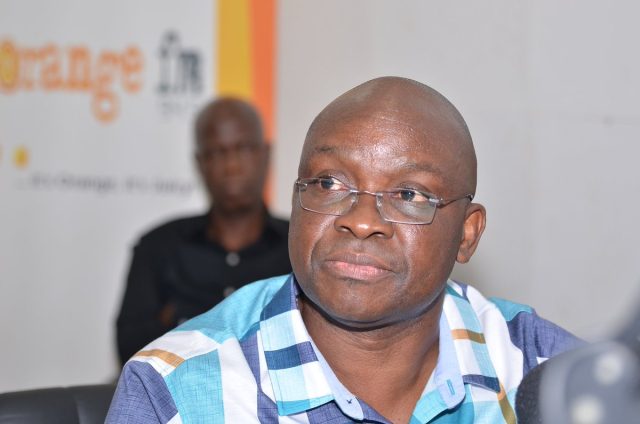The Federal High Court in Ikoyi, Lagos, has postponed the ongoing trial of former Ekiti Governor Ayodele Fayose to July 1, 2024, due to the absence of Justice Chukwujekwu Aneke, who is on official assignment. This development was confirmed by court officials on Monday.
Fayose, alongside his company Spotless Investment Ltd, faces 11 counts of N6.9 billion fraud and money laundering charges brought by the Economic and Financial Crimes Commission (EFCC).
The allegations include illegal possession of large sums intended to finance his governorship campaign and the purchase of properties with crime proceeds.
Initially arraigned on October 22, 2018, before Justice Mojisola Olatoregun, the case saw a re-assignment after the EFCC petitioned against the judge.
Fayose pleaded not guilty to the charges and was granted bail on October 24, 2018, for N50 million with similarly valued sureties.
Upon re-arraignment before Justice Aneke on July 2, 2019, Fayose maintained his innocence and was permitted to continue under the previously granted bail conditions.
Since then, the EFCC has actively presented witnesses to establish the intricate web of financial misconduct linked to Fayose.
According to the prosecution, Fayose and his aide, Abiodun Agbele, were involved in the unlawful acquisition of N1.2 billion on June 17, 2014, purportedly for his campaign in Ekiti State.
Furthermore, Fayose is accused of receiving five million dollars in cash from then Minister of State for Defence, Senator Musiliu Obanikoro, circumventing financial institutions.
The former governor also allegedly held N300 million in his account and took control of approximately N622 million, which he should have recognized as proceeds of crime.
He is similarly accused of directing companies to retain sums totalling N851 million, which also originated from illicit activities.
Properties in Lagos and Abuja worth about N1.6 billion were reportedly purchased as part of the scheme, alongside a N200 million property bought in the name of his elder sister, Moji Oladeji.
These actions, according to the EFCC, are in violation of multiple sections of the Money Laundering Prohibition Act, 2011.














